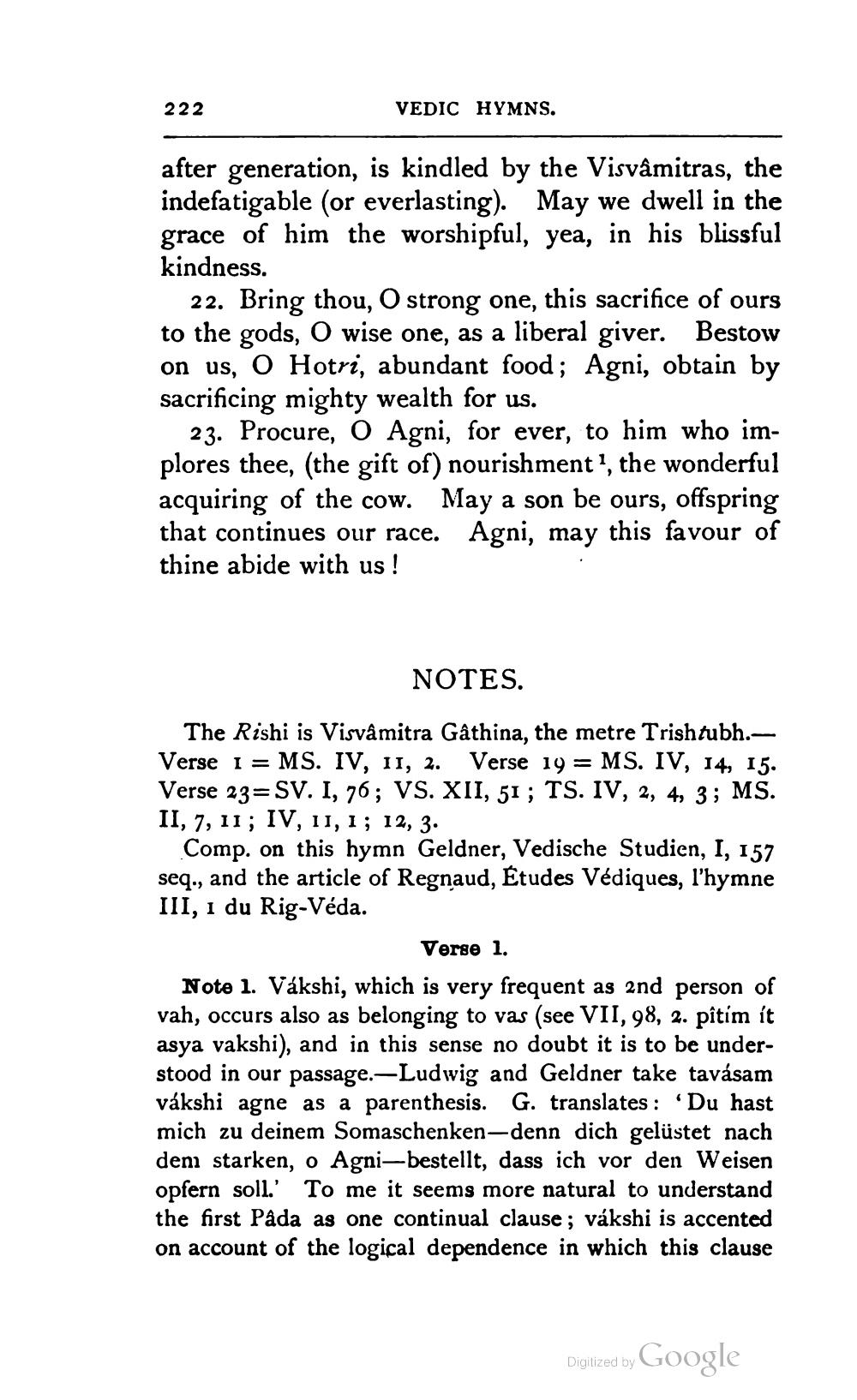________________
222
VEDIC HYMNS.
after generation, is kindled by the Visvâmitras, the indefatigable (or everlasting). May we dwell in the grace of him the worshipful, yea, in his blissful kindness.
22. Bring thou, O strong one, this sacrifice of ours to the gods, O wise one, as a liberal giver. Bestow on us, O Hotri, abundant food; Agni, obtain by sacrificing mighty wealth for us.
23. Procure, O Agni, for ever, to him who implores thee, (the gift of) nourishment, the wonderful acquiring of the cow. May a son be ours, offspring that continues our race. Agni, may this favour of thine abide with us!
NOTES.
The Rishi is Visvâmitra Gâthina, the metre Trishtubh.Verse 1 = MS. IV, 11, 2. Verse 19 = MS. IV, 14, 15. Verse 23=SV. I, 76; VS. XII, 51 ; TS. IV, 2, 4, 3; MS. II, 7, 11; IV, 11, 1; 12, 3.
Comp. on this hymn Geldner, Vedische Studien, I, 157 seq., and the article of Regnaud, Études Védiques, l'hymne III, 1 du Rig-Véda.
Verse 1. Note 1. Vákshi, which is very frequent as 2nd person of vah, occurs also as belonging to vas (see VII, 98, 2. pitim ít asya vakshi), and in this sense no doubt it is to be understood in our passage.—Ludwig and Geldner take tavásam vákshi agne as a parenthesis. G. translates : 'Du hast mich zu deinem Somaschenken, denn dich gelüstet nach den starken, o Agni- bestellt, dass ich vor den Weisen opfern soll.' To me it seems more natural to understand the first Pada as one continual clause; vákshi is accented on account of the logical dependence in which this clause
Digitized by Google




